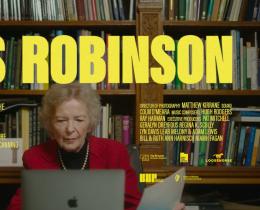Jeremy Rifkin, founder and president of the Foundation on Economic Trends, is one of the world’s leading authorities on economic sustainability. In this thought-provoking five-part series, he explains how we are already transitioning into a post-carbon era and on the verge of creating a sustainable economic paradigm that will usher in the Collaborative Age.
The Third Industrial Revolution will be the last of the great Industrial Revolutions and will lay the foundational infrastructure for an emerging collaborative age. Its completion will signal the end of a two-hundred-year commercial saga characterized by industrious thinking, entrepreneurial markets, and mass labor workforces and the beginning of a new era marked by collaborative behavior, social networks and professional and technical workforces.
In the coming half century, the conventional, centralized business operations of the First and Second Industrial Revolutions will increasingly be subsumed by the distributed business practices of the Third Industrial Revolution; and the traditional, hierarchical organization of economic and political power will give way to lateral power organized nodally across society.
New Business Models & Jobs in the 21st Century
The transition to the Third Industrial Revolution will require a wholesale reconfiguration of the entire economic infrastructure, creating millions of jobs and countless new goods and services. In the new era, everyone can potentially be their own manufacturer as well as their own Internet site and power company.
Currently, Germany is leading the way into this new economic era. The Federal Government has teamed up with six regions across Germany to test the introduction of an energy internet that will allow tens of thousands of German businesses and millions of home owners to collect renewable energies on-site, store them in the form of hydrogen, and share green electricity across Germany in a smart energy internet.
Entire communities are transforming their commercial and residential buildings into green micro-power plants. To date, more than one million buildings in Germany have been converted into partial green micro-power plants. Companies like Siemens, Bosch, and Daimler are creating sophisticated new IT software, hardware, appliances, and vehicles, that will merge distributed Internet communication with distributed energy to create smart buildings, infrastructure, and green mobility for the cities of the future—including distributed and collaborative research and development strategies, open source and networked commerce, performance contracting, shared savings agreements, and sustainable low-carbon logistics and supply chain management. The skill levels and managerial styles of the Third Industrial Revolution workforce will be qualitatively different from those of the workforce of the Second Industrial Revolution.
The transition to the Third Industrial Revolution will require a wholesale reconfiguration of the entire economic infrastructure of each country, creating millions of jobs and countless new goods and services. Nations will need to invest in renewable energy technology on a massive scale; convert millions of buildings into green micro-power plants; embed hydrogen and other storage technology throughout the national infrastructure; lay down a green energy internet; and transform the automobile from the internal combustion engine to electric plug-in and fuel cell cars.
The remaking of each nation’s infrastructure and the retooling of industries is going to require a massive retraining of workers on a scale matching the professional and vocational training at the onset of the First and Second Industrial Revolutions. The new high-tech workforce of the Third Industrial Revolution will need to be skilled in renewable energy technologies, green construction, IT and embedded computing, nanotechnology, sustainable chemistry, fuel-cell development, digital power grid management, hybrid electric and hydrogen-powered transport, and hundreds of other technical fields. Entrepreneurs and managers will need to be educated to take advantage of cutting edge business models.




